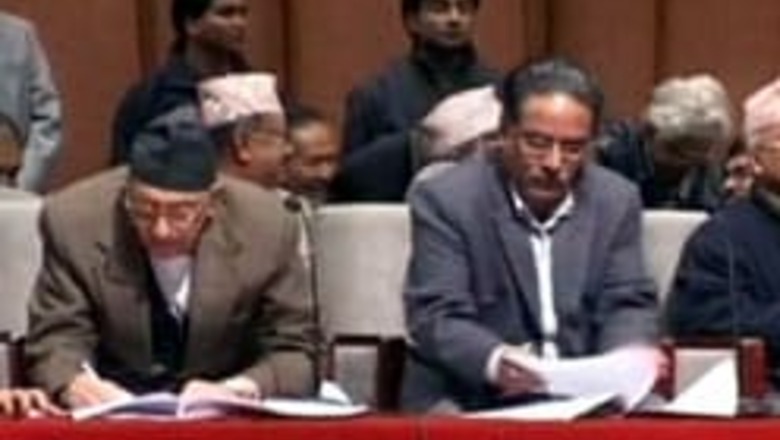
views
Kathmandu: The November election, regarded as a key step in restoring peace and stability in strife-torn Nepal, lay in deep danger Thursday as talks between the government and the Maoist floundered and fresh strikes erupted.
A deadly confrontation between the ruling parties and the Maoists is on the cards on Friday if the warring sides are unable to cobble an election agreement by Thursday night.
Several rounds of talks to reach a compromise have failed after the guerrillas said they wanted the method for the November 22 election to be changed and Prime Minister Girija Prasad Koirala refused to concede their demand.
The Maoists are pressing for a fully proportional representation system instead of the mixed system they had earlier agreed to and have warned of stiff resistance to the polls if the government overrides the demand.
The first set of nominations has to be tabled at the Election Commission office Friday and unless a compromise is reached before, the Maoists have threatened they would not allow nominations to be filed.
Due to the differences, the nomination date had to be postponed last week by five days. Now the Election Commission has warned the government that it won't allow the poll schedule to be changed further.
While the parties and the guerrillas began desultory consultations Thursday, eastern Nepal and parts of the Terai plains in the south remained paralysed.
An alliance of six ethnic communities has called an indefinite general strike since Wednesday in a bid to block the constituent assembly election.
The Sanghiya Ganatantrik Rastriya Morcha - that includes Maoist dissenters as well as the splinter of a powerful Terai organisation - has called the protest to press its demand for the abolition of monarchy before the election, the formation of autonomous states for different communities and a fully proportional electoral system.
In addition to the ethnic closure, Maoists Thursday enforced a shutdown in Makwanpur district in central Nepal and Chitwan in the south after clashes with security forces.
The disruption came after security forces tried to prevent soldiers of the Maoists' People's Liberation Army, who have been barracked in camps in Chitwan, from carrying off timber from the forests Wednesday.
A third general strike has been called in the Terai plains for three days by a dissident former minister and his followers.
Rajendra Mahato, who last week resigned as minister for commerce, industry and supplies, quit the cabinet in a huff after a feud broke out in his Nepal Sadbhavana Party and the Election Commission recognised the dissidents as the bona fide party.
Mahato has moved court over the verdict and vowed to disrupt the election, saying the government was biased against people from the plains and would not hold free and fair elections.




















Comments
0 comment